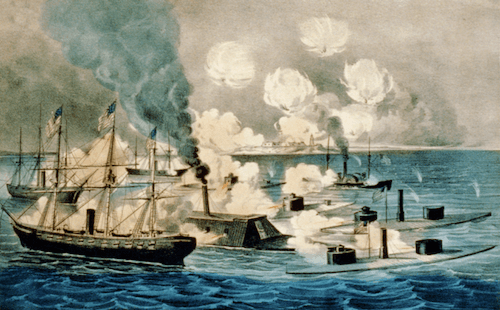When the Civil War began in 1861, Alabama quickly became a major center of activity for the Confederate States of America. The state’s leaders, cities, and citizens played key roles in the political, military, social, and economic developments of the war. From hosting the Confederate government to producing supplies and soldiers, Alabama’s contributions reflected both its deep ties to the Confederacy and the hardships its people faced during the conflict.
A Political Stronghold for the Confederacy
Alabama was one of the first states to secede from the Union, leaving on January 11, 1861. Just a few weeks later, the city of Montgomery was chosen as the first capital of the Confederate States of America. It was in Montgomery that leaders from the seceded states met to form a new government and where Jefferson Davis took the oath of office as the first (and only) Confederate president.
Although the capital later moved to Richmond, Virginia, Montgomery’s early role gave Alabama major political importance. The state remained a firm supporter of the Confederate cause throughout the war. That cause—defending the institution of slavery—was stated clearly in the writings and speeches of many Confederate leaders. Alabama’s decision to secede was directly tied to efforts to preserve the system of racial enslavement that supported the state’s economy and power structure.
Military Support and the Battle of Mobile
Alabama also made significant military contributions. Thousands of soldiers from across the state joined the Confederate army. The state housed training camps and armories, including the Selma Arsenal, which produced weapons and ammunition. Selma became one of the Confederacy’s most important industrial centers, supplying materials needed for war.

Alabama was also the site of major military action. One of the most important battles in the state occurred in Mobile Bay in 1864. Union forces launched a naval attack to cut off Confederate access to the Gulf of Mexico. The Battle of Mobile Bay was a major loss for the South, and it helped the Union gain control of a critical port.
The Draft and Civilian Life
As the war continued, the Confederate government passed a conscription law, or military draft, requiring men to serve in the army. This created tension in many communities, including in Alabama, where some people resisted the draft or felt it was unfair. Wealthy plantation owners could sometimes avoid service, which caused anger among poorer white citizens.
Life for civilians in Alabama became increasingly difficult as the war dragged on. Union blockades limited the flow of goods, causing shortages of food, clothing, and medicine. Prices rose sharply, and many families struggled to meet basic needs. Cities like Selma and Montgomery became crowded with soldiers, refugees, and wounded men.
Women and the War Effort
Women in Alabama played essential roles on the home front. With many men away at war, women managed farms and businesses, raised children, and supported their communities. Many also served as nurses, caring for wounded soldiers in makeshift hospitals. Others sewed uniforms, gathered supplies, or helped organize aid societies. Although they were often left out of official records, women’s work kept Alabama’s society functioning during a time of great hardship.

The Lives and Resistance of Enslaved People
Nearly half of Alabama’s population during the Civil War was made up of enslaved Black people, whose labor underpinned the state’s economy. For them, the war brought both danger and opportunity. Some were forced to dig trenches, work in Confederate camps, or serve enslavers near battlefields.
Others took bold action to seek freedom. As Union troops entered parts of Alabama, enslaved people fled toward them in large numbers, hoping to escape bondage. Some joined Union forces as laborers, scouts, or soldiers when allowed. Others resisted by slowing their labor, spreading information, or refusing orders—actions that undermined the Confederacy from within.
Their decisions, courage, and survival helped reshape the outcome of the war and expanded the meaning of freedom in American life. The war did not begin as a fight to end slavery, but enslaved people across Alabama and the South made sure it could not be won without addressing it.
A Divided Experience
Not everyone in Alabama supported the Confederacy. Some people—especially in the northern part of the state—opposed secession or felt little loyalty to the Confederate government. These Unionists resisted enlistment, hid from authorities, or even supported Union military efforts. The war divided families and communities, and loyalty was not always clear-cut.
At the same time, the perspectives and experiences of formerly enslaved people—like those who told their stories after the war—show the full human cost of Alabama’s role in the conflict. These voices remind us that behind political decisions were people seeking survival, dignity, and freedom.
Alabama’s Legacy in the War
By the time the Civil War ended in 1865, Alabama had been deeply changed. The state had contributed soldiers, weapons, and leadership to the Confederate cause, but it had also endured destruction, hunger, and loss. Cities were damaged, families were torn apart, and the economy was left in crisis. The end of the war brought the end of slavery—but it also began a long and unfinished struggle over what freedom, equality, and justice would mean in Alabama and beyond.
